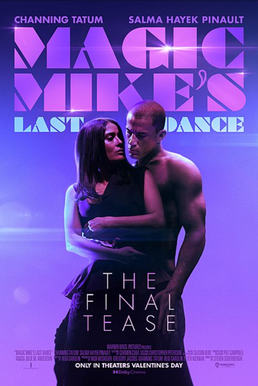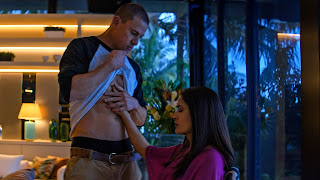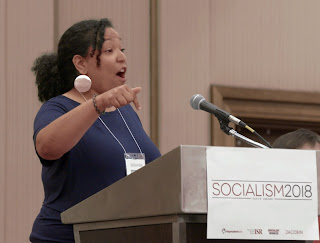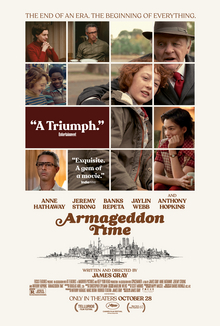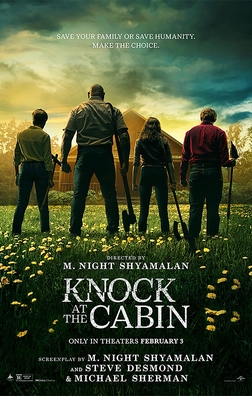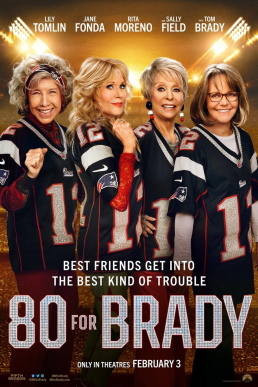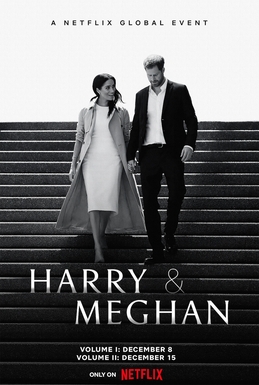HARRY & MEGHANLet us start our fairy tale with that oft-used line, "Once upon a time".
Once upon a time, there was a handsome young British prince. He was beloved and adored by the people, with fame and fortune and everything that goes with it. An eligible bachelor, our Prince of the Realm was the object of many a pretty young thing's affection. Yet, he remained unmarried. Seeing his brother happily married to a popular Duchess, with children of their own, only highlighted his own empty albeit privileged life.
Then, he came upon The One. He was besotted with Her, possessed body and soul by Her, the Woman who could explain everything. She was fount of all wisdom, all truth. Sexual, emotional, psychological, spiritual gratification and liberation he found in Her. She was not just lover but Mother, Friend, Confidante and Confident. She and only She could soothe his soul, spark his erotic desires, love him for himself separate from his title and position. She was light of his life, fire of his loins, his sin, his soul.
She was also, alas, not the type of woman who usually married into monarchy. She was a divorcee and American too. She spoke her mind freely, much to the horror of the Establishment. Would such a woman make for a suitable wife to our Prince?
It did not matter to him. He must have Her by his side, no matter what the cost. His love for Her was so great, so intense, that he willingly gave up all that was Royal to be with "the Woman he loves". Their love would have to make up for titles and riches, though it would mean a life outside his homeland and separation from his family. They would spend the rest of their lives in luxurious exile, shimmering yet fading lights among the glitterati, faraway yet so close to the British throne.
I would not blame you for thinking I was writing about Edward & Wallis, the Duke and Duchess of Windsor. In reality, I was writing about Harry & Meghan, the Duke and Duchess of Sussex. Harry & Meghan is the six-part docuseries recounting "their truth" from their moment of birth to their new lives in Montecito. The aim of Harry & Meghan appears to be of a loving pair that makes some serious allegations against the House of Windsor. It also reveals Mr. & Mrs. Mountbatten-Windsor to be a remarkably boring couple.
Through six episodes, we see their lives then and now. He is the second son to Charles, Prince of Wales and Diana, Princess of Wales. His mother's early death when he was twelve was one of the two turning points of his life. The other turning point is when Harry met Meghan.
She is the mixed-race daughter of a California couple, ambitious for an acting career and a desire to be a positive force in the world.
They met, Meghan Markle unaware who he was. A whirlwind romance began, and at last, they fell in love, and he fell at her feet to propose marriage. Being the newest member of the House of Windsor, however, was a jolt to the big-time television star. The notion of curtsying to her fiancée's grandmother was comical to her. Realizing that her future sister-in-law and Queen didn't hug her back when Meghan greeted Catherine, Duchess of Cambridge was a bad experience.
To be fair, the Windsors were nothing compared to the Markles, the latter creating so much drama as to rival anything the royals could do compared to the white-trash version of Dynasty. Windsor wives have faced intense scrutiny before, but Meghan faced the added layer of overt racism. The entire House of Windsor, in fact, has yet to face a reckoning on their role in upholding white supremacy through the Commonwealth, or as one of the Harry & Meghan interviewees called it, "Empire 2.0".
The press intrusion, the Royal Family's refusal to defend the Sussexes, the feeding of negative Harry and Meghan stories to promote and prop up positive press for the other Windsors (and Cambridges as well), all conspired to drive Harry and Meghan out. Despite the Sussexes' best efforts to find a compromise, it was either all in or all out. They chose freedom and a new life in America, where they can be activists for a better world.
Harry & Meghan reminds me of when one of my cousins invariably breaks out the vacation photos and videos. Now, I love my cousin dearly. However, there is something difficult about seeing my niece in essentially the same pose but from different angles. We get to see Harry and Meghan as victims and survivors, heroes and role models, speaking truth to power. At least, that is how they see themselves.
Unfortunately, Harry & Meghan reveals more about themselves than what even, I suspect, the Sussexes thought short of posing for Playgirl and Playboy respectively. As a side note, I think people have already seen the Duke & Duchess of Sussex in various stages of undress already, but I digress.
The couple we encounter has one positive: they appear to be loving parents to their children Archie and Lilibet, who are seen just enough to be there but not enough to reveal their faces. Apart from that, Harry & Meghan holds up a bizarre self-worship that veers close to parody. There is a lot of footage that the Duke and Duchess shot of themselves (we even start with a video diary from Harry, who more often than not literally does not know what day it is). We see photos of their first AND second dates, posts of his proposal and video of Harry declaring he's on a "freedom flight" when they leave Canada to slum it in Tyler Perry's mansion.
Granted, perhaps it is a generational issue, but I am forever perplexed by people's desire to chronicle every aspect of their lives for others to see. Moreover, the wealth of footage provided by the Sussexes makes one openly wonder if they had planned to use said footage for such a thing as Harry & Meghan. I cannot say that there was such a plan. I merely offer that if they didn't have that plan, why film and photograph themselves ad nauseum?

Some revelations are damning, some quite banal, all of them unpleasant. We learn that their nicknames for each other are "H" and "M", which I find rather odd terms of endearment. That is more on the boring side. For those interested in scandal, Harry and Meghan state that they were sacrificial lambs to The Firm, lightning rods to spare other Windsors from bad press. "We were being more than thrown to the wolves. We were being fed to the wolves," Meghan states. In short, the Duke & Duchess allege that the House of Windsor collaborated with the British press to portray them in the worst light so as to portray the Cambridges and the now King and Queen Consort in the best light.
Those of very serious allegations, but there is no proof of it. Harry and Meghan do not have to provide any proof of collusion and conspiracy, particularly in Harry & Meghan. This, it should be remembered, was coproduced by their production company, Archewell Productions. As such, we would never get anything other than their side of the story. Harry & Meghan would never contradict or dispute anything the Duke & Duchess, their friends, allies or Doria Ragland (the Duchess' mother) said.
Their other major allegation (that criticism towards the Sussexes was motivated in part or whole due to racism) is also hard to pin down. Episodes Two and Three are the most "criticizing Meghan is racist" heavy episodes. However, I do not think that having people such as British commentator Afua Hirsh talk about the history of colonialism and calling the Commonwealth "Empire 2.0" is proof that the Royal Family, their handmaidens the British Press or any random outsider is racist towards a very wealthy woman.
Sometimes though, one is left almost in awe at the Sussexes narcissism and almost clueless nature. Hearing Harry bemoan the poor conditions of Nottingham Cottage on the Kensington Palace grounds is a bit bizarre given that it is still a pleasant, comfortable and posh home (if perhaps a bit small for a tall man like Harry). Meghan, for her part, references "that old movie, Princess Diaries" to indicate what she thought her royal training would be like. The Princess Diaries is as of this date twenty-two years old. For context, Meghan, Duchess of Sussex is as of this writing, 41 years old.
Over and over throughout Harry & Meghan, the portrait they themselves paint is that of a pair of self-important figures, convinced of their victimhood and rightness on everything. Episode Four ends with Leslie Gore's You Don't Own Me playing it out. Why they selected this particular song, I can only guess.
It is not my place to fact-check everything Harry & Meghan say. My job is to review the product presented, not the veracity of said product. There is, however, one point which raised my eyebrows. In Episode Five, Harry states that they were willing to relinquish their titles to make living in self-imposed exile work for them and the Royal Family. However, when asked by Anderson Cooper on 60 Minutes why they didn't give up their titles, the Duke of Sussex replied, "And what difference would that make?"
To my mind, it strikes me as strange and contradictory to offer to renounce a title before only to state later that it would not make a difference now. It did then, so what changed?
One now-infamous moment is when Meghan finds the idea of curtsying to her-then fiancée's grandmother hilarious. Comparing it to Medieval Times, she makes an exaggerated curtsy while her husband watches, she barely able to suppress her laughter. Somehow, her husband apparently failed to explain that said grandmother is also the Sovereign and that until Meghan came along no one questioned bowing or curtsying to The Queen regardless of familial connection. There is a look of horror mixed with uncomfortableness at how Meghan ridicules showing deference to The Queen.
Perhaps that one moment crystallizes the dynamic of the Sussex's worldview.
Ultimately, we learn nothing about the Duke & Duchess of Sussex that the public did not already know. Listing a laundry list of complaints about the Royal Family, their alleged collusion with the press to smear the nobility (regal and spiritual) of Harry and Meghan is not worth the time Harry & Meghan took up. Hearing someone say, "Their departure felt like the death of a dream" is hilarious in its grandiose worldview. One wonders, after finishing Harry & Meghan, if this is how the Duke & Duchess saw it as well.
Harry & Meghan is a puff piece masquerading as a no-hold-barred exposé on the inner workings of the House of Windsor. It ends up revealing the Duke and Duchess of Sussex as almost bitter and resentful towards everything and everyone apart from themselves.
The Duke and Duchess of Windsor literally cavorted with Nazis, yet they at least never openly trashed the Royal Family. It takes great skill to make Edward & Wallis look dignified, even regal, but Harry and Meghan and Harry & Meghan managed that extraordinary feat.
3/10
